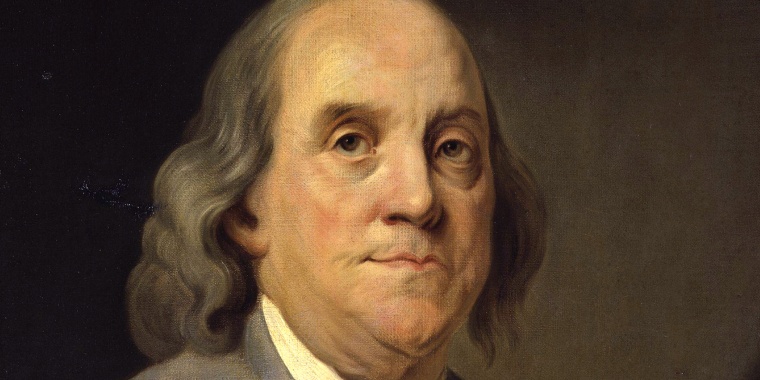Though Founding Father Benjamin Franklin had much to be proud of in his life, he harbored a large regret.
The inventor and scientist, known for his experiments with electricity, wrote a cautionary message for parents in the late 18th century who choose to not inoculate their children against infectious disease.
Franklin had first hand experience on the topic after losing his 4-year-old son Francis "Franky" Folger to smallpox on November 21, 1736.
The Founding Father's centuries-old premonitory tale has gained renewed interest among parents weighing COVID-19 vaccines for their children after the Food and Drug Administration authorized vaccines for kids 5 to 11.
He wrote about the experience in his autobiography, which was published in 1791 after his death.
“In 1736, I lost one of my sons, a fine boy of four years old, by the small-pox, taken in the common way," Franklin wrote.
"I long regretted bitterly, and still regret that I had not given it to him by inoculation. This I mention for the sake of parents who omit that operation, on the supposition that they should never forgive themselves if the child died under it: my example showing that the regret may be the same either way, and that, therefore, the safer should be chosen.”
Inoculation, sometimes referred to as variolation across history, was a procedure used prior to the invention of vaccines that involved putting the virus directly into a person's skin. In 1798, the first vaccine for smallpox was introduced by Edward Jenner.
Franklin, who was pro-inoculation, received criticism for not inoculating his own child. So much so that he issued a statement in the Dec. 30, 1736, issue of the "Pennsylvania Gazette" newspaper.
He confirmed Franky had not been inoculated due to an ongoing sickness, but that, "I intended to have my Child inoculated, as soon as he should have recovered sufficient Strength from a Flux with which he had been long afflicted."
Franklin faced backlash for being outspoken for his views on the subject, including from his own brother, who began a newspaper called "The New England Courant" which was critical of Reverend Cotton Mather, a well-known preacher who advocated for inoculation.
“James Franklin knew next to nothing of the etiology of smallpox, but he knew he despised Mather for what James judged the eminent minister’s smugness and his inordinate influence over the life of Boston,” H.W. Brands wrote in his book "The First American: The Life and Times of Benjamin Franklin". “If Mather advocated inoculation, the 'Courant' must oppose it—and did.”
On October 29, the FDA authorized Pfizer-BioNTech's lower-dose COVID-19 vaccine several days after its advisory committee voted 17-0, with one abstention, in favor of recommending the vaccine for children. The committee concluded that the benefits of vaccination outweigh its risks.
“It’s always nerve-wracking, I think, when you’re asked to make a decision for millions of children based on studies of only a few thousand children,” committee member Dr. Paul Offit, a vaccine researcher at Children’s Hospital of Philadelphia, said. “The question is, when do you know enough? And I think we certainly know that there are many children between 5 and 11 years of age who are susceptible to this disease who could very well be sick and are hospitalized or die from it.”
Related:


